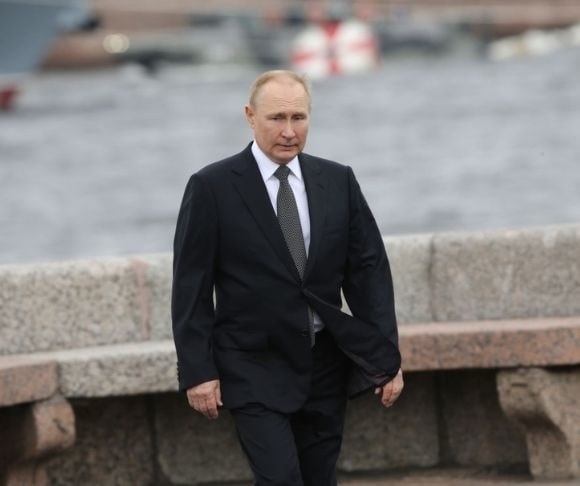Severing a relationship with the United States lasting more than two decades, the Kremlin notified NASA last month Russia would be withdrawing in 2024 from further participation in the International Space Station (ISS). The United States and Russia are not on the friendliest terms since the Kremlin’s unprovoked and brutal invasion of Ukraine, so a move like this from Moscow is not a surprise. Fortunately, Elon Musk’s SpaceX Crew Dragon spacecraft, capable of carrying up to seven astronauts, is a suitable substitute for the Russian launch vehicle.
 The ISS started to take shape in November 1998 when a Russian rocket launched the first element, a Zarya control module, of what would be an orbiting structure the size of a “five-bedroom house or two Boeing 747s,” according to the National Aeronautics and Space Administration (NASA). The first residents of the ISS took occupancy in November 2000, and various crews have lived there since. The international participants are the United States, Japan, Europe, Russia, and Canada.
The ISS started to take shape in November 1998 when a Russian rocket launched the first element, a Zarya control module, of what would be an orbiting structure the size of a “five-bedroom house or two Boeing 747s,” according to the National Aeronautics and Space Administration (NASA). The first residents of the ISS took occupancy in November 2000, and various crews have lived there since. The international participants are the United States, Japan, Europe, Russia, and Canada.
International Space Station Does Not Need Russia
There was a time when Moscow’s Soyuz spacecraft and space launch facilities were helpful as a bridge solution for transportation to the ISS after the termination of the US Space Shuttle program in March 2011. However, SpaceX and other commercial spacecraft alternatives under development make transportation to and from the ISS no longer dependent on Russia. So, if Putin believes departing from the program will somehow embarrass the United States or put American and other international partners’ space programs at a disadvantage, the Russian president would be mistaken.
“It would be helpful if Russia left their segment in place rather than take it with them when they go—one of the station’s two bathrooms are on the Russian side,” Phys.org, a science newsletter, explained. But that raises a good question. Is it possible the United States, a country that put the first two men on the moon 53 years ago, can’t mobilize the entire technical prowess of America to develop and replace the Russian commodes?
The Ukraine war has had consequences for Moscow’s aspirations in space. “The European Space Agency (ESA) ended its collaboration with Roscosmos to launch a rover to Mars, and Russia has stopped launches of its Soyuz spacecraft from an ESA launch site in French Guiana,” the BBC reported. Its significance is its geographic location close to the equator, making spacecraft insertions into low- and high-earth orbit more efficient.
Russia Will go it Alone With Its Own Space Station — Maybe

Vladimir Putin (Photo by Contributor/Getty Images)
If the Russians make good on their decision to pull out of the ISS, President Vladimir Putin is confident Moscow can launch and build a space station of its own. Moscow’s Deputy Defense Minister Yuri Borisov was recently appointed to lead the Kremlin-controlled Roscosmos, Russia’s equivalent to NASA. “The decision to leave the station after 2024 has been made,” Borisov explained following a meeting with Putin. The New York Post reported Roscosmos is planning for a much smaller space research platform that appears to hold just two cosmonauts. However, as bold and optimistic as Roscosmos’ plans are, Russia’s economy — roughly the size of the GDP of Texas and still suffering from international sanctions — will be hard-pressed to afford the project. Backpedaling a bit on the notion of a Russia-only space station, “Roscosmos later clarified to NASA it won’t leave the ISS until Russia finishes building its own space station, which could take until 2028,” Forbes reported.
Without the Kremlin’s participation in the space-borne research structure puts the responsibility for more technical aspects, particularly the propulsion, on NASA, which is more than capable of accommodating Putin’s withdrawal. Additionally, US commercial alternatives — like SpaceX and Blue Origin’s New Shepard — could grow much faster without dependence on Russia’s Soyuz spacecraft for transportation to the ISS. A Putin pull-out could jump-start more independent space initiatives by the United States.
The views expressed are those of the author and not of any other affiliation.




